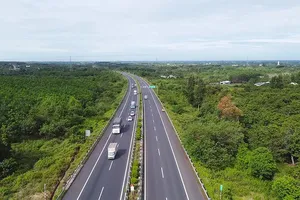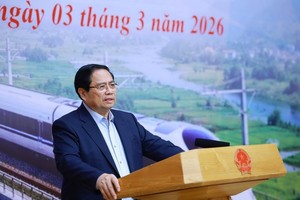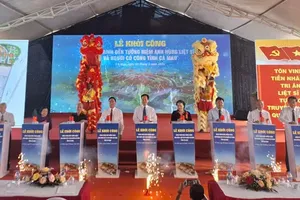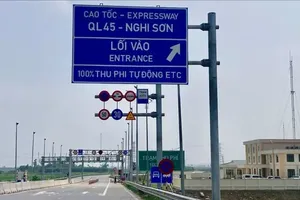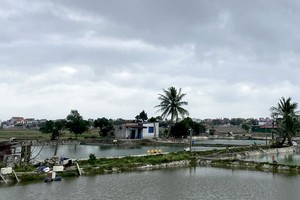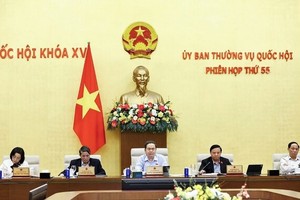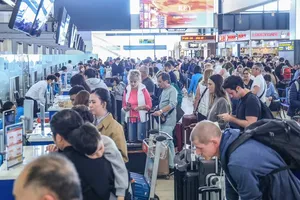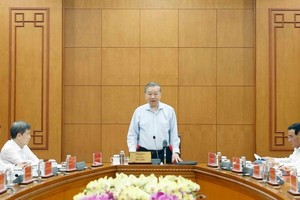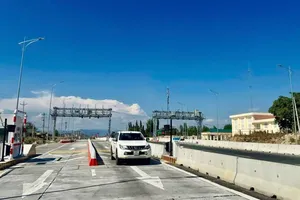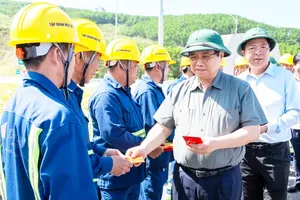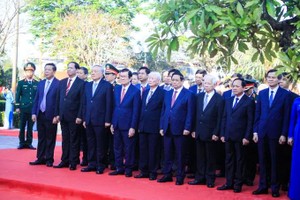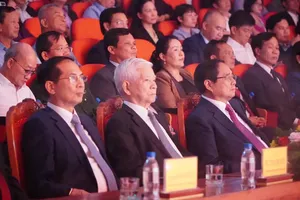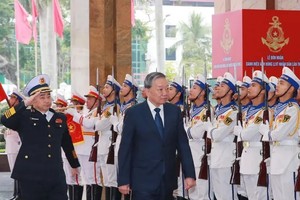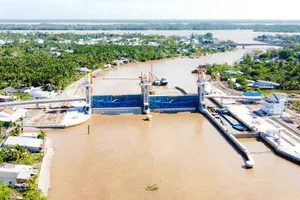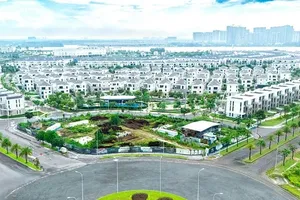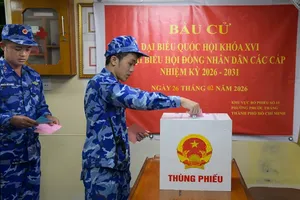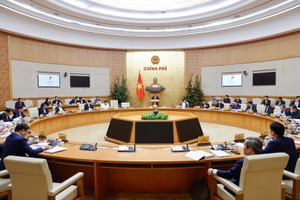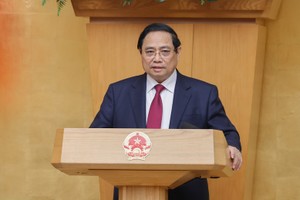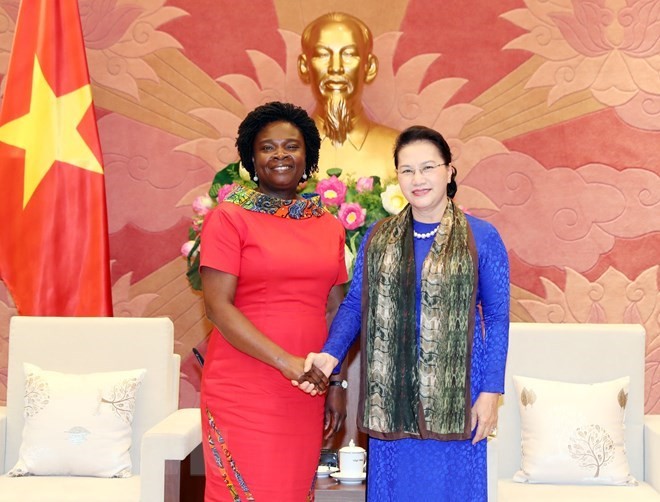
The host highly valued the WB’s role and activities in Vietnam, stressing that it is an important development partner and policy advisor of the Vietnamese Government, greatly helping with local socio-economic development.
The programmes and projects funded by the WB have matched Vietnam’s development orientations in the new period, Ngan said, noting that they focus on promoting macro-economic stability, sustainable development and competitiveness of the country.
Kwakwa, who is in Vietnam to attend the 6th Global Environment Facility (GEF) Assembly, said the country’s hosting of the Asia-Pacific Economic Cooperation (APEC) events in 2017 and the GEF-6 in Da Nang city demonstrates its increasing role in the world.
Congratulating Vietnam on the recent economic achievements, including the good macro-economic balance and the declining ratio of public debt to GDP, she said the Vietnamese NA has made important contributions to these outcomes.
As the environmental issue affects each country’s development, the WB wants to assist Vietnam in dealing with environmental challenges such as hazardous waste, plastic waste and environmental protection in businesses.
Applauding the NA’s role in keeping public debt within a safe level, Kwakwa emphasised that to support Vietnam in this issue, the WB is tightening the management of its cooperation projects with Vietnam to ensure that resources in these projects are used effectively. It is also reviewing the list of cooperation projects and considering reducing and cancelling unnecessary parts.
She asked the Vietnamese parliament to consider raising the capital disbursement ceiling in the medium-term public investment plan so that projects funded by concessional loans of the WB’s International Development Association (IDA) will be carried out on schedule.
Chairwoman Ngan said the NA has always paid attention to fine-tuning policies and laws on environmental protection and implementing relevant international commitments.
She added that the Vietnamese parliament has approved the revised Law on Public Debt Management with many regulations on debt and re-lending amended.
Vietnam prioritises disbursing capital for programmes and projects financed by foreign preferential loans. Therefore, it will consider lifting the disbursement ceiling so as to help disburse the WB’s concessional loans, she noted.
The top legislator asked the WB to continue helping Vietnam to perfect policies and legal framework to boost macro-economic stability, promote growth, especially in the private economic sector, develop human resources, and ensure social harmony and sustainable natural resources and environment.
Regarding the country’s IDA graduation, which means it will no longer be eligible for the IDA’s concessional loans, Ngan called on the WB Vice President to give further transitional support for the country, thus helping Vietnam sustainably maintain development and poverty reduction accomplishments.
Kwakwa said the WB will help Vietnam seek technical support and non-refundable aid while providing it with policy advice, especially experience in avoiding the middle-income trap.
If Vietnam is well prepared for the Fourth Industrial Revolution, it can steer clear of the middle-income trap, she added.
The programmes and projects funded by the WB have matched Vietnam’s development orientations in the new period, Ngan said, noting that they focus on promoting macro-economic stability, sustainable development and competitiveness of the country.
Kwakwa, who is in Vietnam to attend the 6th Global Environment Facility (GEF) Assembly, said the country’s hosting of the Asia-Pacific Economic Cooperation (APEC) events in 2017 and the GEF-6 in Da Nang city demonstrates its increasing role in the world.
Congratulating Vietnam on the recent economic achievements, including the good macro-economic balance and the declining ratio of public debt to GDP, she said the Vietnamese NA has made important contributions to these outcomes.
As the environmental issue affects each country’s development, the WB wants to assist Vietnam in dealing with environmental challenges such as hazardous waste, plastic waste and environmental protection in businesses.
Applauding the NA’s role in keeping public debt within a safe level, Kwakwa emphasised that to support Vietnam in this issue, the WB is tightening the management of its cooperation projects with Vietnam to ensure that resources in these projects are used effectively. It is also reviewing the list of cooperation projects and considering reducing and cancelling unnecessary parts.
She asked the Vietnamese parliament to consider raising the capital disbursement ceiling in the medium-term public investment plan so that projects funded by concessional loans of the WB’s International Development Association (IDA) will be carried out on schedule.
Chairwoman Ngan said the NA has always paid attention to fine-tuning policies and laws on environmental protection and implementing relevant international commitments.
She added that the Vietnamese parliament has approved the revised Law on Public Debt Management with many regulations on debt and re-lending amended.
Vietnam prioritises disbursing capital for programmes and projects financed by foreign preferential loans. Therefore, it will consider lifting the disbursement ceiling so as to help disburse the WB’s concessional loans, she noted.
The top legislator asked the WB to continue helping Vietnam to perfect policies and legal framework to boost macro-economic stability, promote growth, especially in the private economic sector, develop human resources, and ensure social harmony and sustainable natural resources and environment.
Regarding the country’s IDA graduation, which means it will no longer be eligible for the IDA’s concessional loans, Ngan called on the WB Vice President to give further transitional support for the country, thus helping Vietnam sustainably maintain development and poverty reduction accomplishments.
Kwakwa said the WB will help Vietnam seek technical support and non-refundable aid while providing it with policy advice, especially experience in avoiding the middle-income trap.
If Vietnam is well prepared for the Fourth Industrial Revolution, it can steer clear of the middle-income trap, she added.
